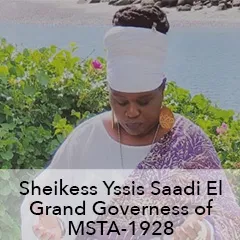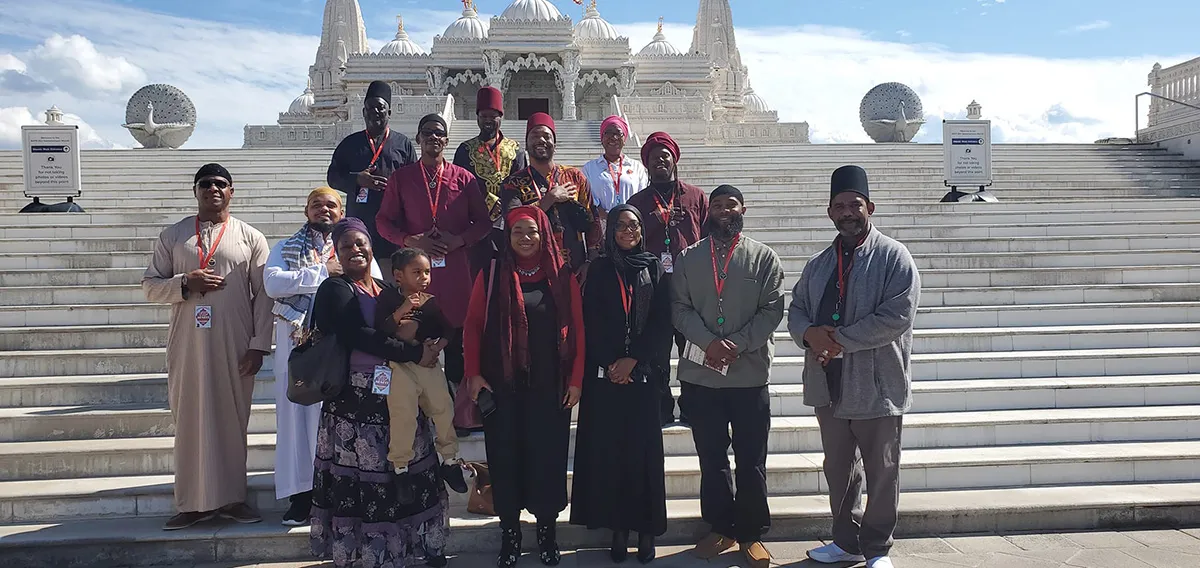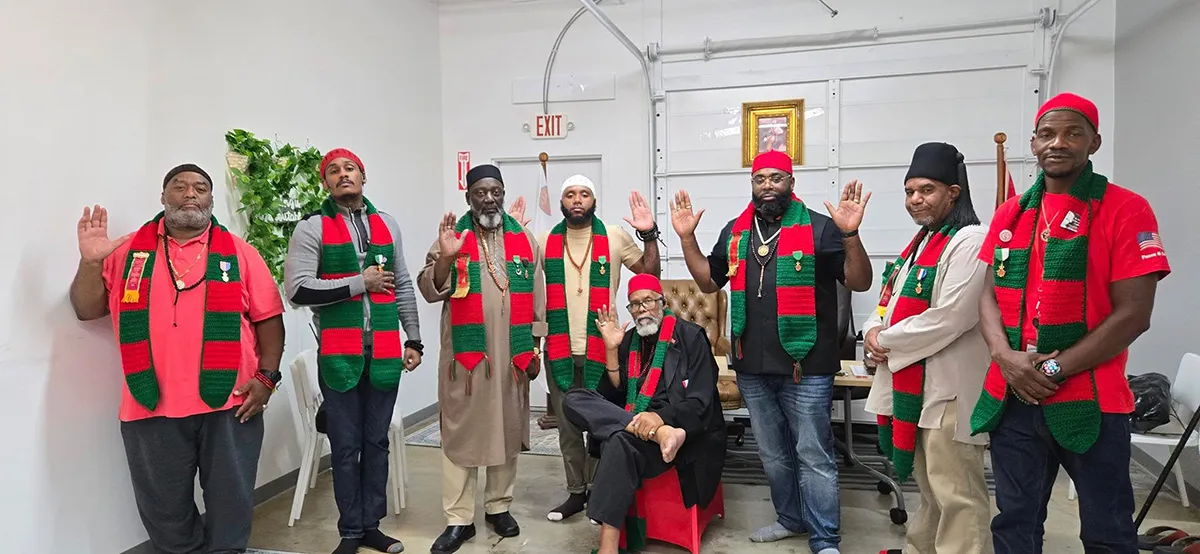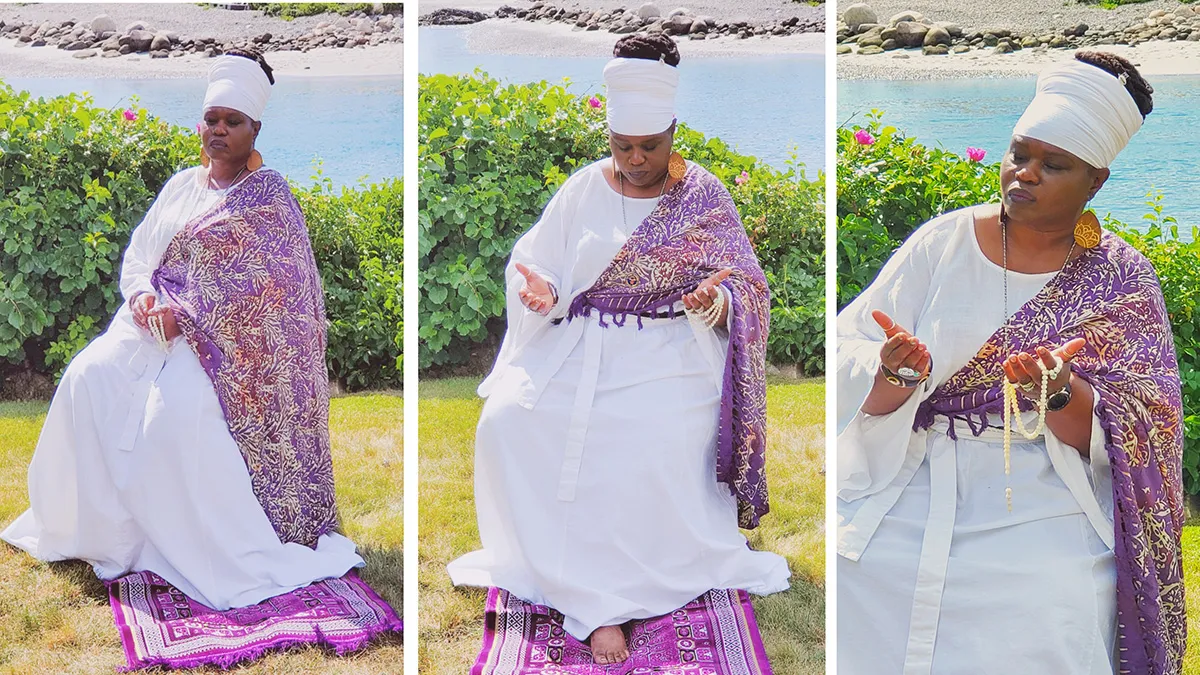
Scholars and human right activists ask that the movement (not to be confused with others with similar names accused of violence) may continue its activities in U.S. correctional facilities.
by Bitter Winter — Note: In publishing this appeal, “Bitter Winter” notes the historic importance of Moorish Science to African-American culture. It is one of the religions established by people of color during the Great Migration, and stands as a historic emblem of one stage in the long march to empowerment of Black people. Because it is a Black religion, Moorish Science has always provoked hostilities in the white-majority American population, but we all have a collective social duty to see that religious freedom is not circumscribed by racism.

Members of The Moorish Science Temple of America-1928
We are scholars of religion and activists in the field of freedom of religion or belief. We want to express our concern with a situation that manifested itself in American prisons and created discrimination against adherents of a specific religion.
The Science Temple of America is an American religious tradition tracing its origins to the teachings of Noble Drew Ali in the early 20th century and proposing an original path relying African American identity to Islam. As it happened with many religions, the Temple went through separations and schisms, and is now divided into several different branches. We do acknowledge that one branch, the so-called “Moorish Sovereign Citizens Movement,” has been accused of violence, fraud, and abuse of the legal system.
It is important to distinguish the Moorish Sovereign Citizens Movement from the mainline branch, The Moorish Science Temple of America-1928 (MSTA-1928), currently under the leadership of Shaykh Ra Saadi El. MSTA-1928 is not associated with the Moorish Sovereign Citizens Movement. On the contrary, it has condemned it and has categorically rejected any anti-government or violent approach.
The MSTA-1928 provides comprehensive religious services and support in correctional facilities, offering programs via publications, DVDs, and certified ministers who volunteer or work as contractors. Its efforts have been repeatedly recognized by prison authorities for positively contributing to the inmates’ well-being. MSTA-1928, through the Moorish Islamic Theocratic Institute (MITI), offers a correspondence course for incarcerated individuals to conduct services, lead study groups, and deepen their faith.

Members of MTA-1928 with their Chief Minister Shaykh Ra Saadi El
Possibly also due to confusions about their identity and faith, MSTA-1928 devotees have been repeatedly denied by prison authorities throughout the United States their rights to assemble for worship and study, to receive materials of their religion, and enroll in the correspondence course.
We respectfully request that MSTA-1928 inmates be granted in all states of the U.S.:
- Right to Assemble for Religious Services: Permit inmates to gather for worship under the supervision of authorized MSTA-1928 ministers or trained inmate leaders who have completed MITI’s Moorish Islamic Studies 101 course.
- Access to Religious Materials: Allow inmates to receive MSTA-1928 publications, DVDs, and other approved religious materials to support their practice of the Moorish Islamic faith.
- MITI Correspondence Courses: Allow inmates to complete the program, enhancing their religious knowledge and leadership. Graduates can then lead services and teach Sunday school in MSTA Islamic studies.

Sheikess Yssis Saadi El, Grand Governess of MSTA-1928
Rather than creating trouble, we believe that these measures, respectful of freedom of religion or belief, will contribute to the safety of the American prison system and to the rehabilitation of inmates through a religious faith preaching high moral values, honesty, and the respect of the laws.
Alessandro Amicarelli, FOB, European Federation for Freedom of Belief, London
Eileen Barker, Professor Emeritus of Sociology of Religions, London School of Economics, London, UK
Francesco Curto, President, Fedinsieme (Faiths Together), Turin, Italy
Raffaella Di Marzio, Director, The Center for Studies on Freedom of Religion Belief and Conscience (LIREC), Rome, Italy
Willy Fautré, Director, Human Rights Without Frontiers, Brussels, Belgium
Holly Folk, Professor of American Religious History, Western Washington University, Bellingham, WA, USA
Massimo Introvigne, CESNUR, Center for Studies on New Religions, Torino, Italy
Camelia Marin, Deputy Director, Soteria International, Copenhagen, Denmark
Hans Noot, President, Gerard Noodt Foundation for Freedom of Religion or Belief, Langenboom, The Netherlands
Bernadette Rigal-Cellard, Professor Emeritus in North American Studies and Religious Studies, University of Bordeaux Montaigne, France
Thierry Valle, President, Coordination des associations et des particuliers pour la liberté de conscience, Paris, France
María Vardé, Institute of Anthropological Sciences, Faculty of Philosophy and Letters, University of Buenos Aires, Argentina
Martin Weightman, Director, All Faiths Network, London, UK
Rosita Šorytė, ORLIR, International Obversatory of Religious Liberty of Refugees
Source: Bitter Winter





